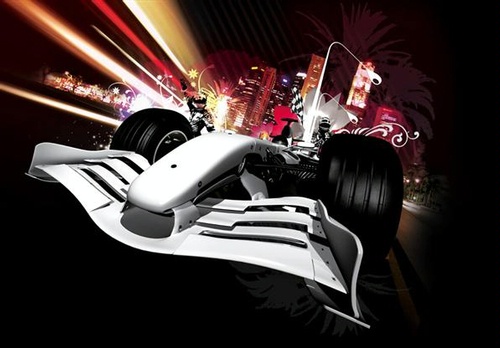
Next weekend’s inaugural Singapore Grand Prix (26/27/28th September) will present the Formula One drivers with a multitude of challenges. Not only will they be racing under lights for the first time, they also face an all-new circuit and a ‘working day’ that won’t finish until the small hours of the morning.
What makes the next race particularly challenging of course is that it is the first night race for the drivers, which will surely present some unique challenges. It will be a real test of skill and bravery as they approach the street-based circuit’s corners.
The late race (meaning the drivers will complete it very late in the night) will present some very particular problems that aren’t experienced anywhere else. Whether this means the race will be more or less exciting remains to be seen. Below I have compiled some interesting facts on F1 drivers that I hope will inform you a little more on the sport.
* Whilst humidity might be more of an issue in Singapore, for some circuits temperatures can be excruciatingly hot in the small, cramped cockpit of an F1 car. The Australian Grand Prix can apparently see temperatures of almost 60 degrees Celsius in that small space.
* It is common knowledge that F1drivers have to be fit – though often people don’t know understand why, after all you don’t need to be fit to drive your car. However, an F1 driver typically has a heart rate of 150-170 beats per minute for the length of the race. Naturally, this is a massive strain on your cardiovascular system and is accented by massive adrenaline dumps as your brain struggles to compute the corners at 150 miles per hour.
* Following on from the cardiovascular fitness, drivers must be able to have endurance to last the whole race. This comes from very particular training regimes as it can be hard to replicate the stresses that driving an F1 car put on the body. Strong neck and chest muscles are important to absorb those G’s, whilst arm muscles help to counter those forces when making difficult cornering manoeuvres.
* Like any sports person, an F1 driver has to be extremely strong mentally. This is to cope with the physical challenges, but also the mental ones. For instance, if you lose a few places, then you should never get despondent. Many will use some sort of trigger motion or ritual to get in the right mindset for the race.
I have a huge amount of respect for F1 drivers – their skills are second to none when it comes to driving vehicles that are pushing the limits of human ability (in many ways similar to jet fighters). However, I’d love to see the cars being more equal in the sports as I think this would be even more exciting and push the drivers even further in their reaching for racing greatness.
No comments:
Post a Comment